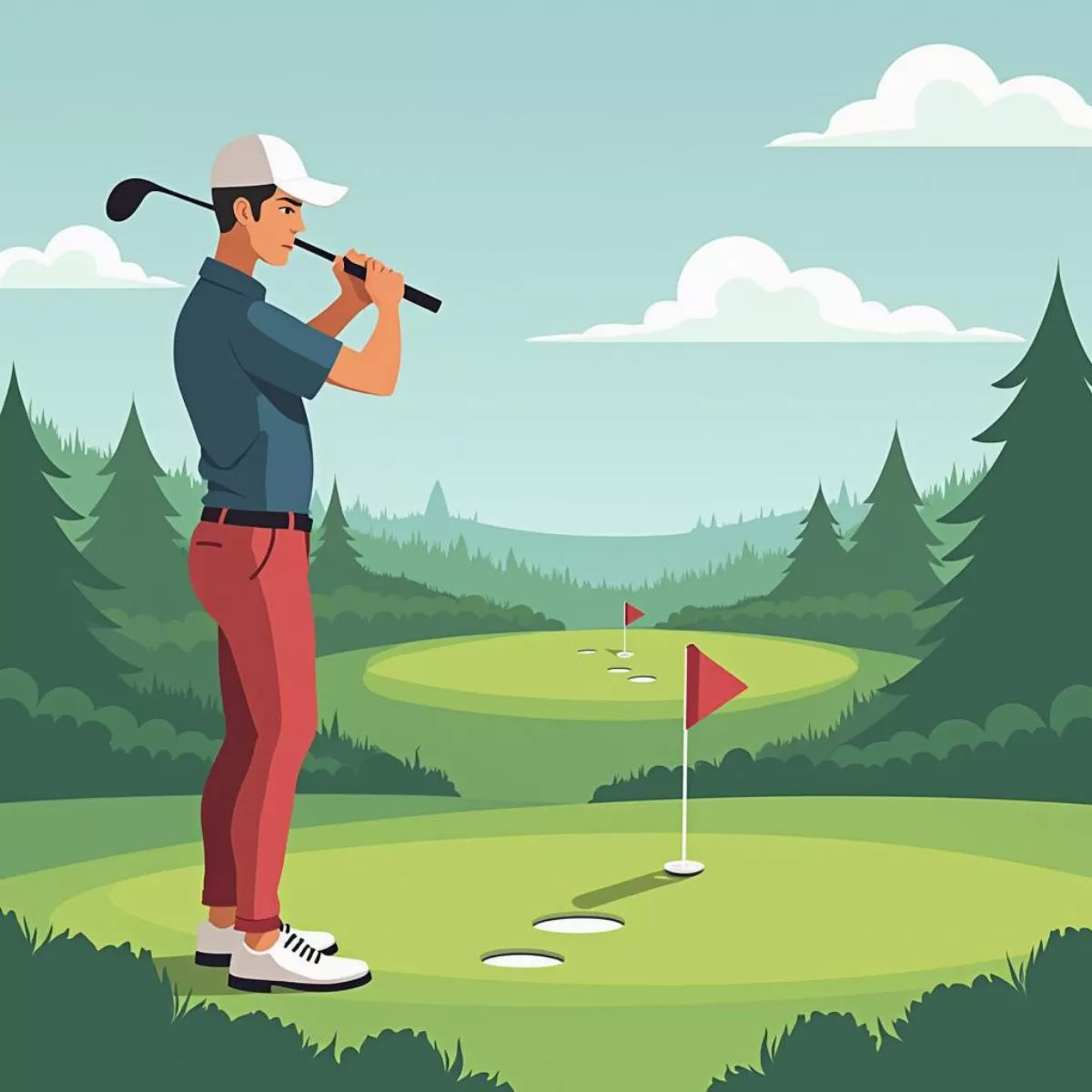Golf is a game celebrated for its intricate combination of skill, precision, and strategy. Yet, it’s also a sport that welcomes players of all proficiency levels. Among these players, you’ll often hear discussions about high handicappers. If you’re new to the game or simply curious about what it means to be a high handicapper, this guide serves as your friendly, educational resource.
What Is a High Handicapper?
In golf, a handicap is a numerical measure of a golfer’s potential ability. It allows players of varying skill levels to compete fairly against one another. A high handicapper typically has a handicap index over 18 for men and over 24 for women. This category generally encompasses beginner and intermediate players who may struggle with consistency, distance, and accuracy.
Breakdown of Handicaps
| Handicap Index | Player Skill Level |
|---|---|
| 0-5 | Low Handicapper (Skilled) |
| 6-12 | Mid Handicapper |
| 13-20 | High Mid Handicapper |
| 18+ | High Handicapper (Less Experienced) |
Being a high handicapper doesn’t mean a player can’t enjoy the game or improve their skills. In fact, many high handicappers are passionate golfers eager to learn and grow.
 Golf Course with Players of Different Skill Levels
Golf Course with Players of Different Skill Levels
Characteristics of High Handicappers
Understanding the traits of high handicappers can help you identify areas for improvement and set realistic gaming expectations.
1. Inconsistent Performance
High handicappers often exhibit variability in their game. One moment, a well-executed swing might lead to a great shot, and the next, poor alignment may send the ball astray.
2. Struggles with Short Game
Many high handicappers find that their short game, which includes putting and chipping, is less developed. This can lead to higher scores as they might struggle to save par on easy-to-reach greens.
3. Limited Course Management Skills
Effective course management involves knowing when to play conservatively. High handicappers may have difficulty making tactical decisions, leading to more double bogeys or worse.
4. Nervousness on the Course
Playing under pressure can affect anyone, but high handicappers may find that nerves disrupt their focus and lead to mistakes.
Common Challenges Faced by High Handicappers
While the challenges mentioned earlier are common, let’s elaborate on some factors that hinder high handicappers from reaching their potential.
 Golfer Preparing for a Shot
Golfer Preparing for a Shot
A. Mental Game
The psychological aspect of golf can significantly affect performance. High handicappers might focus too much on their mistakes instead of enjoying the game, causing a negative feedback loop.
B. Limited Practice Time
Many high handicappers struggle to find time to practice, resulting in slower improvement. Balancing work and family obligations often takes precedence over the driving range.
C. Equipment Mismatch
Sometimes, high handicappers use clubs that don’t match their skill level or swing characteristics, hindering their overall performance.
D. Poor Technique
Fundamental swing mechanics may not be well established, affecting ball contact, distance, and direction.
Tips for High Handicappers to Improve Their Game
If you’re classified as a high handicapper, don’t be discouraged! Improvement is not only possible; it’s expected with the right approach. Here are some practical tips to elevate your game:
1. Find a Coach
Working with a qualified golf coach can provide personalized guidance tailored to your unique swing and weaknesses.
2. Focus on the Short Game
Invest time in improving your putting and chipping skills; these are essential areas to lower your scores.
 Golfer Practicing Putting
Golfer Practicing Putting
3. Understand Course Management
Learn the course layout and implement strategies to avoid hazards. Knowing when to play conservatively can save strokes.
4. Practice Regularly
Consistency matters. Dedicate time weekly to practice both on and off the course to build muscle memory.
5. Invest in Proper Equipment
Evaluate your clubs. Choose equipment that suits your playing style and comfort to enhance your performance.
6. Work on Your Mental Game
Explore ways to improve concentration. Visualization techniques, breathing exercises, and mindfulness can go a long way in helping you enjoy your game without unnecessary anxiety.
7. Join a Community
Engage with other golfers, whether through local leagues or online forums. Learning from your peers can foster growth and enjoyment.
8. Have Fun!
Remember, golf is as much about enjoyment as it is about scores. Keep a light heart, and don’t lose sight of what drew you to the game in the first place.
Key Takeaways
- A high handicapper is typically defined as having an index above 18 for men and 24 for women.
- Common traits include inconsistency, challenges in the short game, and course management skills.
- Focus on gradual improvements in technique while enjoying the process.
- Building a strong mental game and practicing short game skills can significantly impact scores.
FAQs About High Handicappers
1. What is the average handicap for most golfers?
The average handicap for male golfers is around 15, while for female golfers, it’s approximately 20.
2. Can high handicappers play in tournaments?
Absolutely! Many tournaments accommodate golfers of all skill levels, allowing high handicappers to compete fairly.
3. How can I find my handicap?
Most golf courses have a system in place to track handicaps. You can also find online calculators and resources for determining your index based on your scores.
4. Is there a limit on how high a handicap can be?
While there’s technically no cap, golfers with a handicap over 36 for men and over 40 for women are often considered to be at the upper end of the scale.
5. What type of clubs are best for high handicappers?
Clubs designed for forgiveness—such as oversized drivers and cavity back irons—are often beneficial for high handicappers.
6. Do high handicappers have a distinct style of play?
Yes, high handicappers generally tend to prioritize power over accuracy, which may lead to errant shots.
7. How often should high handicappers practice?
Aim for practice sessions at least once a week both on the course and at the driving range.
 Group of Golfers on Driving Range
Group of Golfers on Driving Range
8. What common mistakes do high handicappers make?
High handicappers often rush their swings, neglect proper warm-up, or overthink their shots which can lead to mistakes.
9. Is it worth investing in lessons as a high-handicap golfer?
Yes, professional lessons can expedite improvement and help develop proper technique, promoting lifelong enjoyment of the game.
10. What’s a typical score for a high handicapper?
Scores can vary widely depending on the course and individual skills, but many high handicappers might shoot between 90 to 110.
With consistent practice, dedication, and a focus on enjoyment, high handicappers can transform their game and increase their love for golf. Embrace the journey, and remember that every great golfer started somewhere!

